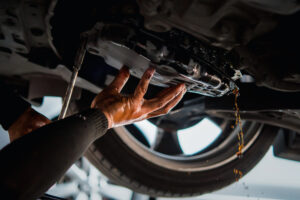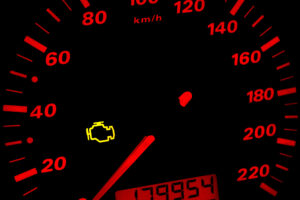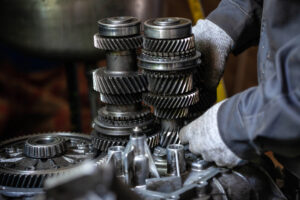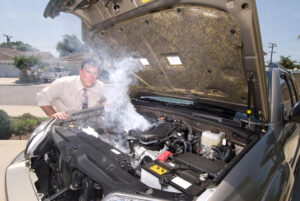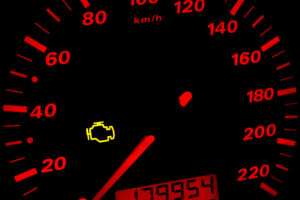Each time you sit behind the wheel, there’s a familiar feel to your car. The way it sounds, moves, and responds to your direction should be reliable. When your car acts, sounds, or smells different than normal, it should catch your attention—and some of those signs may point to a transmission problem. Your transmission is responsible for transferring the right amount of power from the engine to the drive wheels, depending on the selected gear. It’s important to understand the signs of transmission trouble so that repairs can be handled as soon as possible, preventing more extensive damage.
Common Signs of Transmission Problems
If you want to stay ahead of more serious transmission trouble, it’s important to understand how to catch early signs. The sooner you notice symptoms, the more you can avoid bigger problems by finding a solution early. As soon as you notice any of these common signs, it’s time to consider how to best figure out an underlying cause and fix the problem.
Difficulty Shifting or Inability to Shift Gears
It should feel easy to shift gears—whether it’s between park, drive, and reverse or from third to fourth—if you start noticing resistance, there’s probably an issue with your transmission. Each gear shift relies on both fluid flow and mechanical movements. Either of those components can have problems that make it more difficult to shift gears.
Delayed Gear Engagement
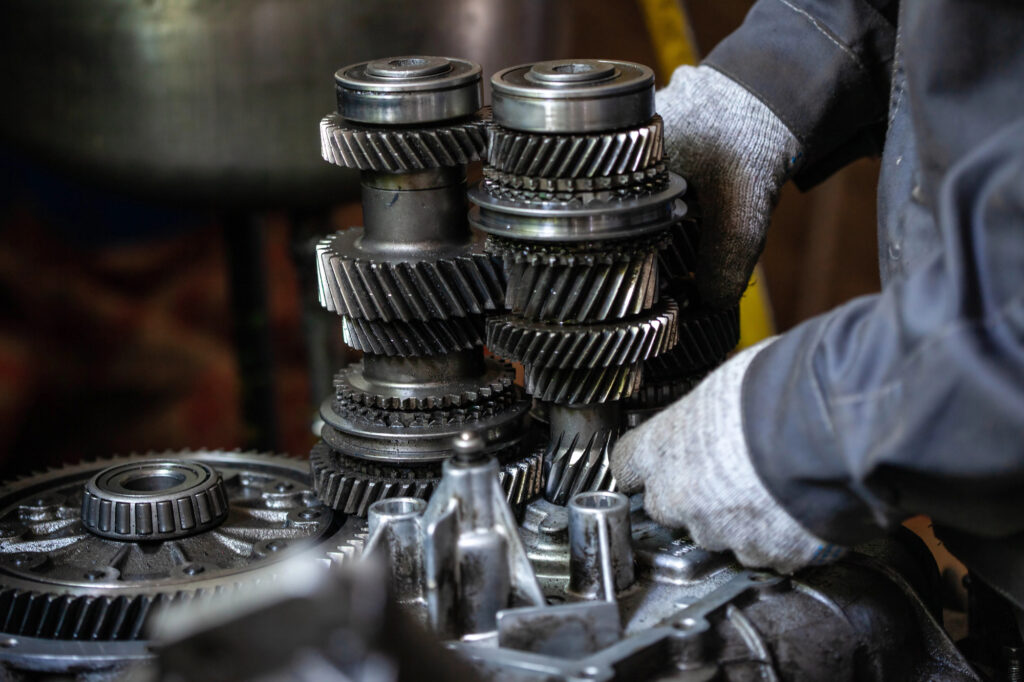
There’s always a brief pause when you shift gears as power stops transferring. However, if that pause turns into a longer delay, it may mean that your car is struggling to fully engage the next selected gear. If you recently went off-roading or drove in flooded conditions, there may be water contamination in the system. You may also have low transmission fluid or overdue maintenance. Either underlying cause should be checked as soon as possible to avoid bigger issues like overheating.
Hesitation, Jerking, or Weak Response During Acceleration
A slipping transmission can feel like your car’s power is like a yo-yo, sometimes having power and other times hesitating or jerking. In general, slipping gears can relate to bad fluid or worn mechanical parts. If you have generally poor acceleration, it could be related to a slipping transmission, other internal transmission issues, dragging brakes, or a problem detected by your car’s computer, leading to intentionally decreased power.
High Engine RPM with Lack of Power
Does your engine rev but you still have no power? This means your transmission may be stuck in neutral, which can indicate slipping gears. The disconnect between your engine, transmission, and drive wheels can cause your engine to continue working to power your vehicle—without that power making it to the transmission or drivetrain. A slipping transmission commonly comes down to bad fluid or worn mechanical parts.
Grinding, Buzzing, Humming, Whining, or Clunking Sounds
A variety of sounds can come from under the hood of your car when there’s an issue. Depending on the type of transmission in your vehicle and the sounds you hear, it can help identify which problems may need to be fixed. Buzzing or humming can indicate a bad bearing or damaged gears. Buzzing could also point to a bad seal or low transmission fluid. Grinding during gear shifts can point to low fluid or worn gears. Each of these is best checked by a professional mechanic.
How to Solve Most Common Transmission Issues
Many of the most common transmission problems can be solved with a few key services. Regularly changing the transmission fluid can help prevent issues in the first place. On the other hand, replacing worn components, leaking seals or gaskets, and rebuilding or fully replacing the system may be necessary to restore performance.
Replace Your Transmission Fluid & Filter Regularly
One of the most important steps you can take for your transmission’s health is regularly changing both the fluid and filter. Aim to schedule this service about every 50,000 miles or as recommended by your owner’s manual and mechanic. Keeping transmission fluid fresh and full prevents excess wear in the system and allows for optimal performance. The filter keeps out contaminants, but can also get in the way of fluid flow if it becomes clogged.
Replace Components Related to Fluid Flow
Aside from the fluid itself, various components help keep it flowing, including a pump and solenoids. Over time, the transmission pump can wear out or become faulty, limiting its power to cycle fluid through the system. Solenoids are small valves that open and close to direct the flow of fluid. They can become faulty or dirty, blocking proper fluid flow or allowing it to go where it shouldn’t. These should be replaced as soon as possible to restore proper transmission performance.
Replace Seals & Gaskets Before They Wear Out
If you’re dealing with a transmission fluid leak, it most commonly comes down to a worn seal or gasket. These will gradually wear out over time and replacing them early will help prevent bigger issues like fluid leaks, increased wear or damage to internal components, and more noticeable impacts to performance.
Transmission Rebuild or Replacement
When you’re dealing with more serious transmission problems, it may become necessary to rebuild or replace the system entirely. A transmission rebuild involves thoroughly checking individual internal components and replacing any that are faulty or damaged. More extensive damage may make a full replacement the better option, where a remanufactured transmission is installed in place of the old one. In either case, you should have a mechanic you trust to help.
Dealing with Transmission Problems in Sacramento? AAMCO’s Mechanics Can Help.
For the best in transmission repair near Sacramento, visit your local AAMCO. Our expert mechanics will help. From transmission grinding to slipping gears or overdue maintenance, we’ll check key systems in your vehicle and identify which services may be necessary so that you drive away confident in the condition of your car. Schedule your appointment with us today!

